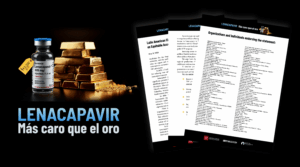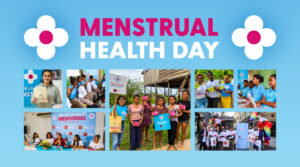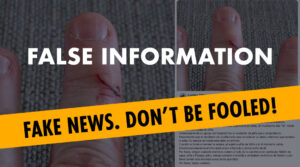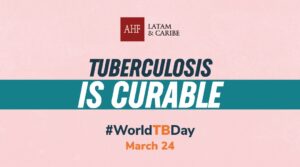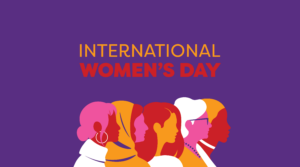A new year is a new beginning and an opportunity to learn. Breaking the stigmas surrounding HIV sounds like an excellent resolution for 2025, helping to create a shift in mindset that benefits the entire community.
The stigma and discrimination associated with HIV remain barriers that prevent many people from seeking support, getting tested, or starting treatment. It’s time to break myths and prejudices to start the year by building an informed society free of discrimination.
If you think it’s too big of a task, don’t worry—debunking myths takes time, and it can only be achieved through information. Why don’t we take a look at some of the misconceptions about HIV that are still being spread?
“HIV means death”
Death is one of the most harmful stigmas associated with HIV, even after 40 years of its emergence. The reality is far from that belief. Today, with the right treatment, HIV has become a manageable chronic condition. Antiretroviral medications allow people with HIV to live as long as those without the virus, leading full and healthy lives.
Additionally, treatment has a community-wide benefit as it reduces viral load to undetectable levels, which makes transmission impossible. This principle is known as Undetectable = Untransmittable (U=U).
“Only certain people are at risk of acquiring HIV”
Another common misconception is believing that HIV only affects certain groups of people, such as LGBTQ+ individuals, sex workers, or people who inject drugs. Since many of these populations were already stigmatized, HIV is often perceived as a so-called “consequence” of behaviors that are still socially judged.
However, the truth is that anyone who engages in unprotected sex can be at risk. The same applies to those who share or come into contact with non-sterile injection equipment for any reason. Believing that HIV only affects certain groups not only stigmatizes specific communities but also creates a false sense of security for those outside these groups.
“You can’t live with someone who has HIV”
Everyday life with a person living with HIV poses no risk to others. HIV is not transmitted through hugs, kisses, sharing kitchen utensils, or using the same bathroom.
The fear of living or working with someone who has HIV is irrational and has no scientific basis. However, it contributes to the social isolation of people with this condition, affecting their mental health and emotional well-being.
To break stigmas, start with education
Misinformation fuels fear, but a quick search in reliable sources can clarify any doubts. Open conversations about HIV and sexuality in general help normalize these discussions and reduce stigma.
Breaking stigmas is a great goal for the new year. Changing our mindset not only benefits people living with HIV but also makes us agents of change in the community. Building an inclusive and discrimination-free society is everyone’s responsibility.
If you want to learn more about HIV or get a free HIV test, AHF Latin America and the Caribbean provides them for you. Find our offices in your country or contact us via WhatsApp to learn more about our services.


